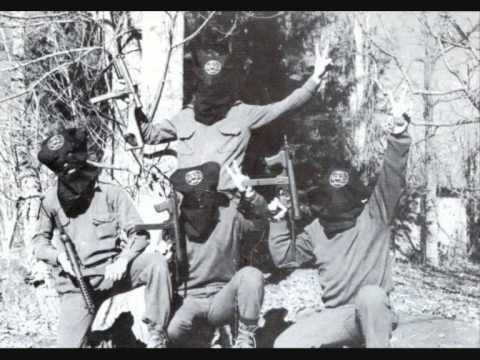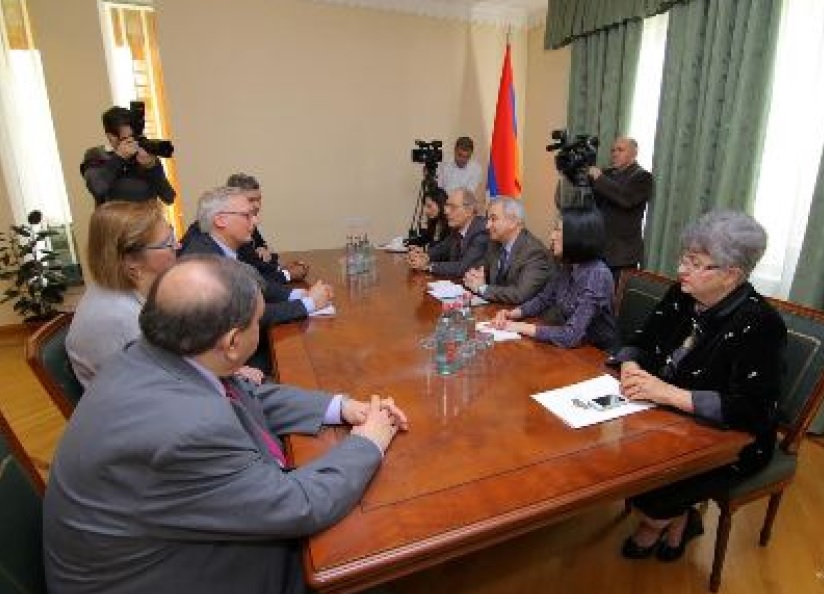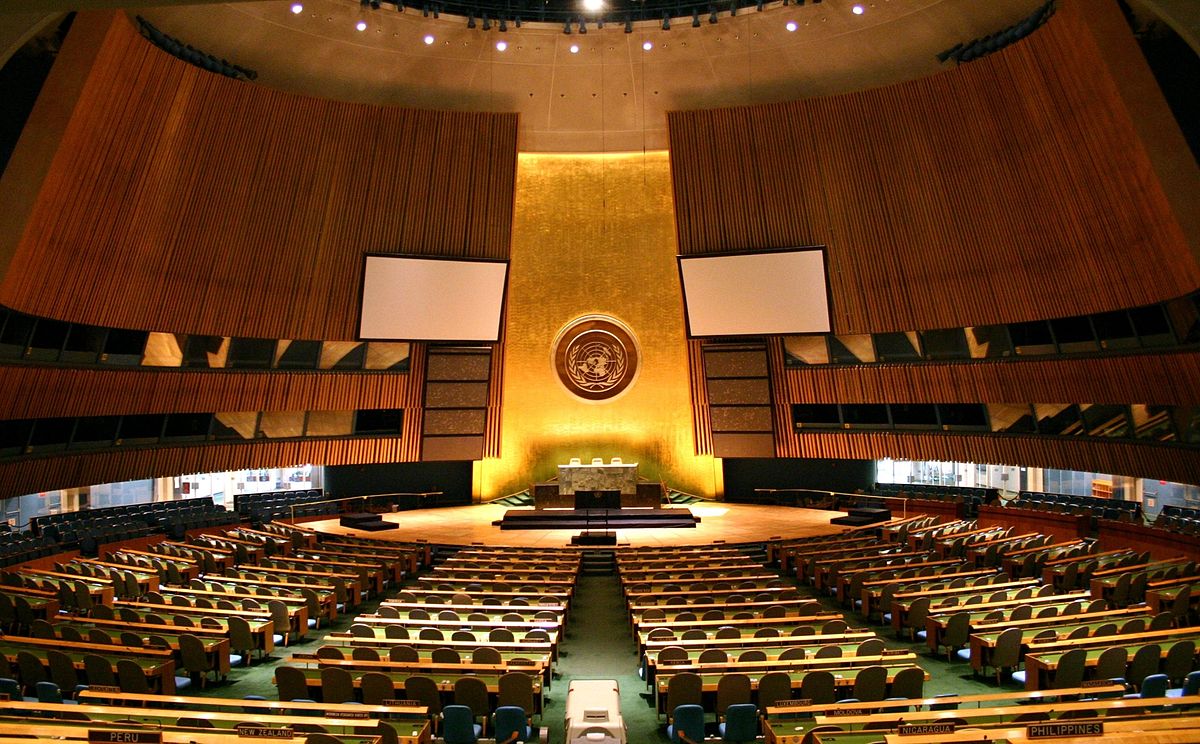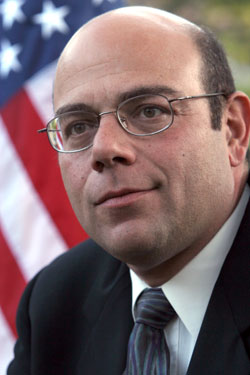
One chamber of Switzerland’s parliament adopted a resolution in 2003 which stated that “the National Council recognizes the Armenian Genocide of 1915. It calls on the Swiss Government to take necessary action and relay its position through the usual diplomatic channels” despite Swiss government’s opposition at the time. Thus, when Doğu Perinçek publicly announced that the Armenian Genocide was an “international lie” during various conferences in Switzerland in 2005, Armenian Diaspora filed complaints against him depending on the aforementioned bill adopted in 2003. As a result he was found guilty of “racial discrimination” in accordance with the Swiss Criminal Code on the grounds that his motives were of a racist tendency. Furthermore, his appeals were rejected by the Criminal Cassation Division of the Vaud Cantonal Court and later by the Federal Court on December 2007. Perinçek then brought his case before the European Court of Human Rights on the grounds that in accordance with the Article 10 of the European Convention of Human Rights, Swiss courts breached his freedom of expression. ECHR announced its decision regarding the Perincek v. Switzerland case on 17th of December 2013. The case concerned his criminal conviction for publicly questioning the Armenian genocide allegations. We will be analyzing some of the major points at this decision and then share our views on the future implications as well as presenting an overall evaluation and the meaning of the decision.
The result of the case was as expected, that the case would result in his favor, that the Swiss courts had breached his freedom of expression under the Article 10 of the ECHR, and despite the possibility of indicating some reservations on the “hurtful” character of his statements, the decision would be that these statements are within the freedom of expression as defined in the ECHR. Moreover, it was expected that, the Court would be unwilling to get intermingled in any discussion on the Armenian genocide allegations, but rather limit its decision within the limits of the freedom of expression as defined in the Article 10. i
Court ruled in favor of Doğu Perinçek and stated that the Swiss courts violated the Article 10 of the ECHR. Moreover the decision establishes some very important legal precedents for the future possible attempts regarding the Armenian genocide allegations by the Diaspora and Armenia.
Decision states that, Perinçek’s comments are protected by Article 10, as he never “questioned the massacres and deportations perpetrated during the years in question… (N)or had he expressed contempt for the victims of the events.”ii Limitations to the Article 10 and defined at Article 17 do not apply for Perinçek, since he was never convicted or prosecuted for inciting hatred or violence, and “however sensitive and controversial they might be… (Perinçek) had not used his right to freedom of expression for ends which were contrary to the text and spirit of the Convention (of Human Rights)”. Thus, the limit to the freedom of expression is inciting hatred and violence, and diaspora Armenians for a long time argued that even the expression that there was no “Armenian genocide” itself is violence and hatred against the Armenians, a “genocide” which is established unanimously by the scientific and international community. On the contrary, both the ECHR and the related case-law suggest that “however offensive, shocking or disturbing they are”, Perinçek’s comments are within the limits of the freedom of expression. Furthermore, Swiss government argued that Perinçek’s comments posed “a serious risk to public order”, a weak referral to the 2nd point in the Article 10, namely the “public safety” an argument which was found insufficient for the measures against Perinçek. Thus the Court highlights that Perinçek’s insistent exposure of himself on Swiss territory to a criminal sanction “prescribed by law” was in fact of a “historical, legal and political nature which was part of a heated debate”. Moreover, Court acknowledged the fact that it would be very difficult to identify a general consensus in the academic community concerning the legal characterization of the events of the time as genocide.iii For a long time, both the Turkish State and some very courageous scientists from around the world argued that there is a one-sided historical narrative that is promoted internationally on the “Armenian genocide” claims whereas the historical reality is much more complex than it seems. Remember Prof. Bernard Lewis’ case in France, when he was sentenced to pay one franc as damages on the grounds that “by concealing elements contrary to his opinion, he neglected his duties of objectivity and prudence.”iv Recently, as a result of a massive campaign, Prof. Justin McCarthy was verbally attacked during his visit to Australia, as a result of which most of his academic talks scheduled during his visit were cancelled under pressure.v
The statement of the existence of a “heated debate” is of critical importance also for another reason, as it reveals the fact that the decisions/resolutions by the Parliaments of a number of countries recognizing the Armenian genocide allegations are in fact of political nature and have no judicial ramifications. In the sense that these decisions/resolutions are political, they do not reflect a historically or legally confirmed truth; as the Court states, even the Federal Court of Switzerland itself admitted that there was no unanimity in the community as a whole concerning the legal characterization in question. Hence, these recognitions “had not necessarily come from the governments of those states but from parliaments or one of their chambers”, which amount to 20 out of 190 countries.
Since the WWII, Armenian Diaspora tried to impose the view that the “Armenian genocide” was the “first genocide of the century”. Holocaust and the following developments created a psychological sympathy for those nations who became the victims of the horrors of the War, a sentiment which the Armenian diaspora quickly adopted. In fact, they attempted to compare the “Armenian genocide” with the Holocaust and draw attention to their allegations before the international community. vi ECHR decision clearly put aside the possibility of a comparison of the two cases, since there had been a clear legal basis for the Holocaust, while the current case did not. The focus of the Court is the existence of a decision by an international court; Armenians never openly and unilaterally made their case before an international court as defined in the 1948 Genocide Convention. On the contrary, as the recent attempts show, Diaspora Armenians try to bring their allegations before the courts of other countries with oblique methods and fail.vii In addition, Court affirms that the term “genocide” is a precisely defined legal concept, and the case-law of the ICJ and the ICTR suggests that the existence of the “intent to destroy (dolus specialis) not only certain members of a particular group but all or part of the group itself” must be proved. All the evidence suggests that
"There is no evidence of a decision to massacre. On the contrary, there is considerable evidence of attempts to prevent it, which were not very successful. Yes there were tremendous massacres, the numbers are very uncertain but a million may well be likely ... [and] the issue is not whether the massacres happened or not, but rather if these massacres were as a result of a deliberate preconceived decision of the Turkish government... there is no evidence for such a decision.viii"
It is obvious that the Swiss courts were biased in their conviction against Perinçek.ix In fact, his basic right to right of defense was breached when his statements -that the Armenians at the time revolted against the Ottoman state and committed massacres long before the relocation decision of 1915- were excluded from the decisions of the court on the grounds that they were outrageous and unacceptable.x
Diaspora Armenians and the Armenian government accelerate their efforts before 2015, but until now both in the US where diaspora is highly organized and politically influential, and in Europe, the results are not encouraging. A recent decision by the ECHR on the Katyn massacres is of significance in that respect. The subject of the case was the mass killings that took place at
Katyn (Russia) during the division of Poland between the Nazi Germany and the USSR. The court ruled that it had no jurisdiction over the massacre itself or the subsequent treatment of the relatives of the dead “because the massacre took place a decade before the rights convention became international law and 58 years before Russia acceded to it, in 1998.”xi Another decision by the US Supreme Court constituted a major setback for the Diaspora Armenians in the US that annulled the 354.45 of the California Civil Code of Procedure on the grounds that the law interfered with the President’s authority to dictate foreign policy.
Lastly, it is still early to consider Perinçek case closed. The opposing views by judges Pinto and Albuquerque no doubt provide encouragement for continuing with the Armenian propaganda. Nevertheless, the decision will be marked as a reminder for the Armenians to realize that their political propaganda has its limits in the international arena.
i Pulat Tacar (2012) Avrupa İnsan Hakları Mahkemesi’nde Doğu Perinçek-İsviçre Davası: Bir Düşünceyi İfade Özgürlüğü Sorunu ve Adil Bellek Talebi, Kaynak Yayınları, İstanbul, s. 251-252
ii “Criminal conviction for denial that the atrocities perpetrated against the Armenian people in 1915 and years after constituted genocide was unjustified” Press Release issued by the Registrar of the Court, ECHR 370 (2013), 17 Aralık 2013 hudoc.echr.coe.int/webservices/content/pdf/003-4613832-5581451
iii Hakan Yavuz (2011) “Contours of Scholarship on Armenian-Turkish Relations” Middle East Critique Volume 20, Issue 3,
iv “Condamnation judiciaire de Bernard Lewis” http://www.voltairenet.org/article14133.html v Readers can just google “justin mccarthy australia” and see for themselves. vi Yücel Güçlü (2012) The Holocaust and the Armenian Case in Comparative Perspective, University Press of America
vii Aslan Yavuz Şir “Diaspora Armenians and their Restitution Attempts” (in Turkish) Ermeni Araştırmaları, No: 41, 2012
viii “Statement of Professor Bernard Lewis Princeton University Distinguishing Armenian Case from Holocaust” 14 April, 2002 http://www.ataa.org/reference/lewis.pdf
ix (Amb. Rtd.) Pulat Tacar’s book on the Perinçek case examines the decisions of the Swiss courts in light of international law and international case law and shows that both during the hearings and at their decisions, the Swiss courts violated the basic legal principle of neutrality in several occasions.
x Tacar (2012) pp. 248-249
xi “Ruling on Katyn Killings Highlights Russia-Poland Rift” NYTimes, October 21, 2013 http://www.nytimes.com/2013/10/22/world/europe/rights-court-assails-russia-over-inquiry-of-1940-massacre.html
© 2009-2025 Center for Eurasian Studies (AVİM) All Rights Reserved

 ARMENIAN LEGAL ATTEMPTS ARE FUTILE
ARMENIAN LEGAL ATTEMPTS ARE FUTILE
 NEW ZEALAND ATTACK AND THE ARMENIAN DIASPORA’S TRIAL WITH TERRORISM
NEW ZEALAND ATTACK AND THE ARMENIAN DIASPORA’S TRIAL WITH TERRORISM
 ARMENIAN ATTEMPTS FOR THE RECOGNITION OF NAGORNO KARABAKH AND BELGIAN PARLIAMANTERIANS’ VISIT TO STEPANAKERT
ARMENIAN ATTEMPTS FOR THE RECOGNITION OF NAGORNO KARABAKH AND BELGIAN PARLIAMANTERIANS’ VISIT TO STEPANAKERT
 SPEECH DELIVERED AT THE CONFERENCE TITLED “GLOBAL AND REGIONAL DETERMINANTS OF TRILATERAL COOPERATION”, TBLISI, JUNE 5TH 2018
SPEECH DELIVERED AT THE CONFERENCE TITLED “GLOBAL AND REGIONAL DETERMINANTS OF TRILATERAL COOPERATION”, TBLISI, JUNE 5TH 2018
 BAKALIAN CASE APPEAL HEARING HELD IN CALIFORNIA
BAKALIAN CASE APPEAL HEARING HELD IN CALIFORNIA
 THE OPPOSITION AGAINST TURKEY IN THE ELECTION OF THE PRESIDENT OF UN GENERAL ASSEMBLY
THE OPPOSITION AGAINST TURKEY IN THE ELECTION OF THE PRESIDENT OF UN GENERAL ASSEMBLY
 RELATIONS BETWEEN THE PKK AND ASALA
RELATIONS BETWEEN THE PKK AND ASALA
 CONFERENCE ORGANIZED BY LSE’S CONTEMPORARY TURKISH STUDIES CHAIR
CONFERENCE ORGANIZED BY LSE’S CONTEMPORARY TURKISH STUDIES CHAIR
 ARMENIAN-KURDISH COALITION IN SYRIA: TURCOPHOBIA FUELS THE HOSTILE FEELINGS OF SOME ILL-MINDED ARMENIAN NATIONALISTS
ARMENIAN-KURDISH COALITION IN SYRIA: TURCOPHOBIA FUELS THE HOSTILE FEELINGS OF SOME ILL-MINDED ARMENIAN NATIONALISTS




























